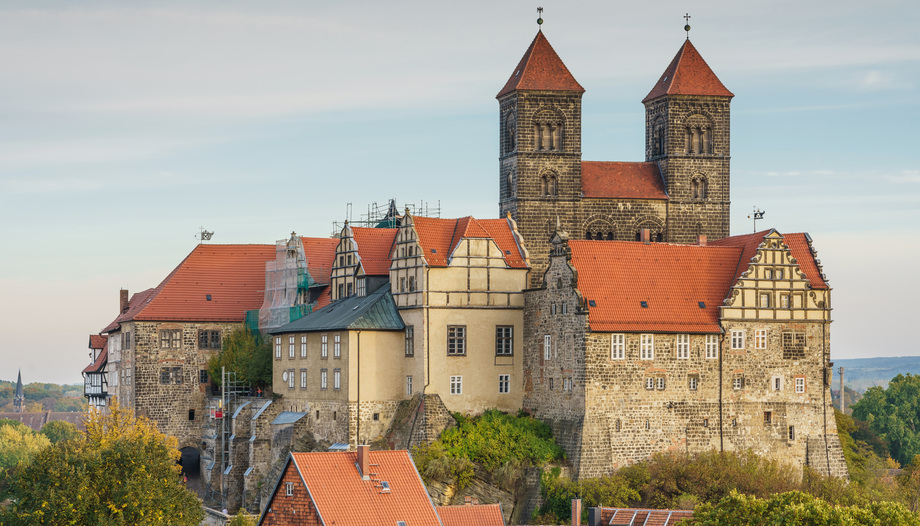Throughout the Middle Ages, women stood out in a male-dominated world and exerted a lasting influence on society and the Church. Significantly, at the dawn of the (Holy) Romano-Germanic Empire, during practically the entire 10th century, four female figures emerged who played a crucial role in the consolidation of the kingdom. As the last character in this series of articles that began with Mechthild, the wife of Henry I, there is a different Mechthild, the abbess.
Abbess Matilda, sister-in-law of Theophanes, was the daughter of Otto I and Adelaide, and therefore sister of Otto II and aunt of Otto III. Born in 955, she assumed the office of abbess of Quedlinburg at the early age of eleven, succeeding her grandmother, St. Mechthild.
His consecration took place in 966, in a ceremony attended by his father and all the bishops and archbishops of the empire, which underlined the extraordinary nature of this act. Papal confirmation of his consecration was granted by John XIII in April 967.
Imperial Representative
From the death of her grandmother on March 14, 968, who not only contributed to the appointment but also to the education of the young Mechthild, until her father's return from Italy at the end of 972, she was the sole representative of the imperial house north of the Alps for almost four years. This situation, in which an abbess assumed responsibility for imperial affairs in the absence of the emperor, was unprecedented until then.
After the return of his father, Emperor Otto I, from Italy, he celebrated Easter 973 in Quedlinburg, emphasizing the importance of this city at a time when there was no capital of the Empire. On this occasion he received an "international" representation: Slavic (Polish) nobles such as Mieszko and Boleslaw, as well as "envoys from the Greeks, Benaventans, Hungarians, Bulgarians, Danes, Slavs and all the great ones of the whole kingdom," according to the chronicler Thietmar of Merseburg. Although no written records exist, it is reasonable to assume that Abbess Mechthild was present at this historic event.
Abbey extension
On the one hand, Quedlinburg Abbey began to expand its influence. After Otto III gave his aunt the palace of Wallhausen, one of the favorite places of the Ottons - here Henry I and (St.) Mechthild had married in 909 and here Otto I was probably born in 912 - in 985, the abbey's possessions extended into the foothills of the Harz, founding and annexing other abbeys, such as the monastery of Münzenberg in 986, in memory of his brother Otto II. The system was completed in 997 with the foundation of Walbeck. The link between the abbeys and monasteries was the commemoration and prayer for the deceased.
Mechthild played a key role in the development of Quedlinburg, which Otto III elevated to a city in 994, granting it a market, currency and customs, thus making it the most important political center of the dynasty. During Otto III's second trip to Italy in 997, he entrusted his aunt Matilda with the representation of the Empire, repeating the responsibility he had assumed from 968 to 972.
"Domina imperialis"
Mechthild convened and led in 998 the Diet of Derenburg, which brought together the most influential men of the empire, where she even dispensed justice. These actions earned her the title of "domina imperialis" by Otto III, who also bestowed upon her the title of "matricia" - by analogy to "patricius" - as mentioned in the inscription on her tomb.
Mechthild died in February 999 at the age of 44. She was buried next to her grandmother in the abbey of Quedlinburg; she was succeeded as abbess by her niece Adelaide, eldest daughter of Emperor Otto II and Empress Theophane.








